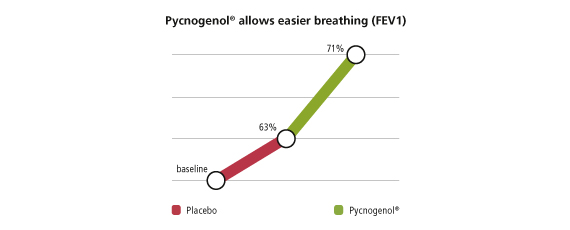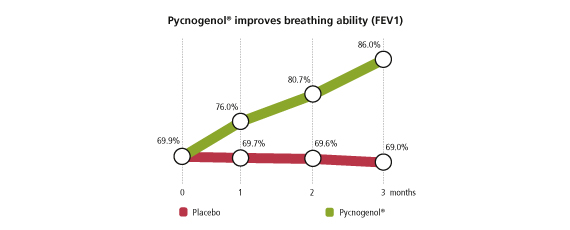Respiratory health

Respiratory health

Data source: Asthma Fact sheet N°307– May 2008 – WHO
Asthma is believed to be the result of inflammatory processes of the bronchi, which causes them to constrict and swell, aggravating airflow, prompting obstruction of the airway.
Pycnogenol® French maritime pine bark extract was demonstrated to help asthmatics improve their breathing ability.

One in three people suffer from allergies; which are an overreaction of the body’s immune system toward substances it considers harmful.
Allergens, such as in hay-fever, and which cause negative reactions from the body, are commonly pollen, dust, mite and animal hair.
When a person who is allergic comes in contact with one of these allergens, mast cells release the tissue-hormone histamine. The histamine in turn triggers sneezing, nasal congestion, coughing, wheezing, itching and bronchial swellings.
According to studies, Pycnogenol® was found to inhibit the release of histamine from mast cells that were aggravated by an irritant. And, since this powerful antioxidant is an anti-inflammatory, it inhibits production of pro-inflammatory mediators helping to relieve swelling and making breathing easier.
Pycnogenol® also exhibited promise in the management of childhood asthma. Researchers found that 60 children aged 6 to 18 years with mild to moderate asthma were able to significantly reduce or discontinue their use of rescue inhalers when they supplemented with Pycnogenol®, whereas as the placebo group experienced no benefit.
The antioxidant activity of Pycnogenol® coupled with its anti-inflammatory properties soothe irritations that cause the bronchi to swell, making breathing difficult in asthmatics.
